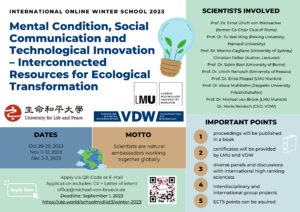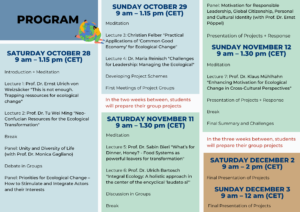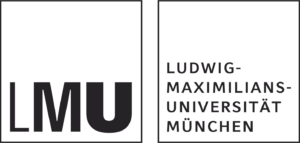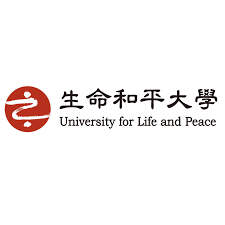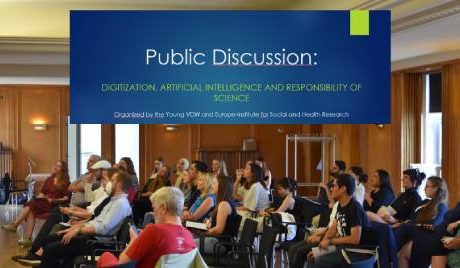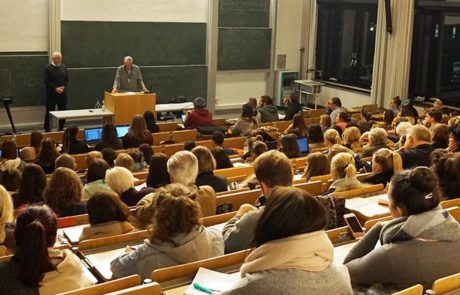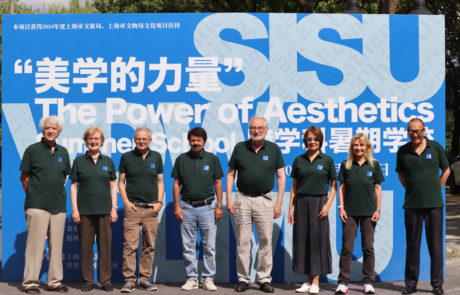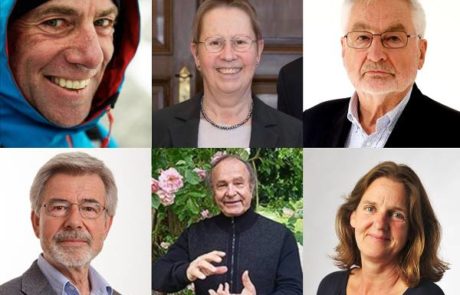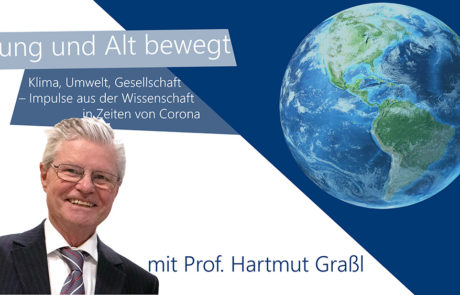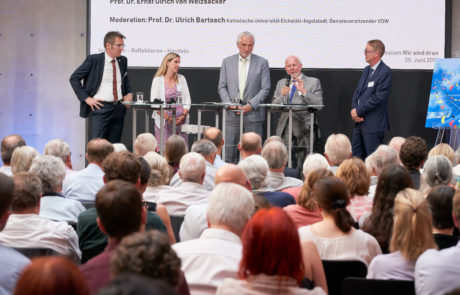October 28, 29 / November 11, 12 / December 2,3 2023 | International Online Winter School
Global warming and biodiversity loss are two of the most urgent and important issues right know. And still, we – human beings – are not acting accordingly. In the International Online Winter School „Neurocognitive and Social Mechanisms for an Ecological Turn“ we will unfold this topic together with some of the most renowned scientists in their fields. Thereby participants will become part of an international and interdisciplinary network trying to find answers to the most pressing questions of our time.
From Insight to action.
„This way it is not enough“ (E.U.von Weizsäcker): Conference after conference sets new targets in order to avoid destruction of the conditions for life on earth. The two most important issues being probably global warming and the fast destruction of biodiversity. More and more governments, industries, research centers and large civil movements (such as „Fridays for Future“) do see the problems and engage in preventing the ecosystems from collapse. But this is not enough. Why do we (human beings in general) not act, though we know basically what needs to be done? How can we enhance and speed up the processes that would lead to a fundamental turn in our behaviour? Why do we not act with sufficient intensity?
These are the basic questions for our Winter School. They will be focused in two practical dimensions:
- How to create and enact individual motivation and courage for ecological change based on creativity and the joy of engagement?
- How to engage and integrate institutional or social actors by overcoming inertia and self- centered attitudes?
Mental condition (thinking, feeling, will) is shaped by our ways of thinking and evaluating internal as well as external processes (mind and nature). This is not fixed. We can learn to live in harmony within ourselves and with our environment. Many people (especially indigenous cultures in the forests) do still have a mentality we can learn from. In modern sciences this is being taken up by fascinating research about the life (and sensitivity) of plants and animals: Plants and animals are not objects to our disposal but co-beings, and we humans share our life with them. What does this mean for our communication with other forms of life, and for the development of our technologies which are not tools for using and exploiting nature in destructive ways, but instruments for sharing with nature the fundamental resources of life. If we develop patterns for our life style which are based on the three aspects of this title as interconnected resources, we might develop a spiritual ecology in depth.
Schedule
28.-29. October 2023
Lectures and Panels
Learn from renowned scientists and engage in insightful panels
11.-12. November 2023
Lectures and Presentations
Learn from renowned scientists and discuss your group project
30. October - 10. November 2023
Group Projects
Between units work independently on your group project with your peers online
2.-3. December 2023
Final Presentation and Evaluation
Final presentation and evaluation of the group projects (30 min each group)
Speakers
We build a bridge between experienced experts and students and promote problem-solving competencies for overcoming central challenges of our world.
Application
Applications, including your CV and letter of interest can be submitted via email to: office@michael-von-brueck.de c/o Dr. Sonja Lichtenstern
